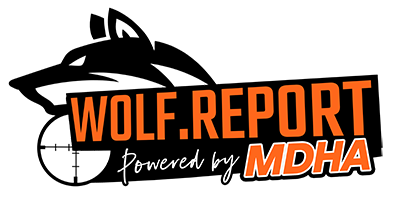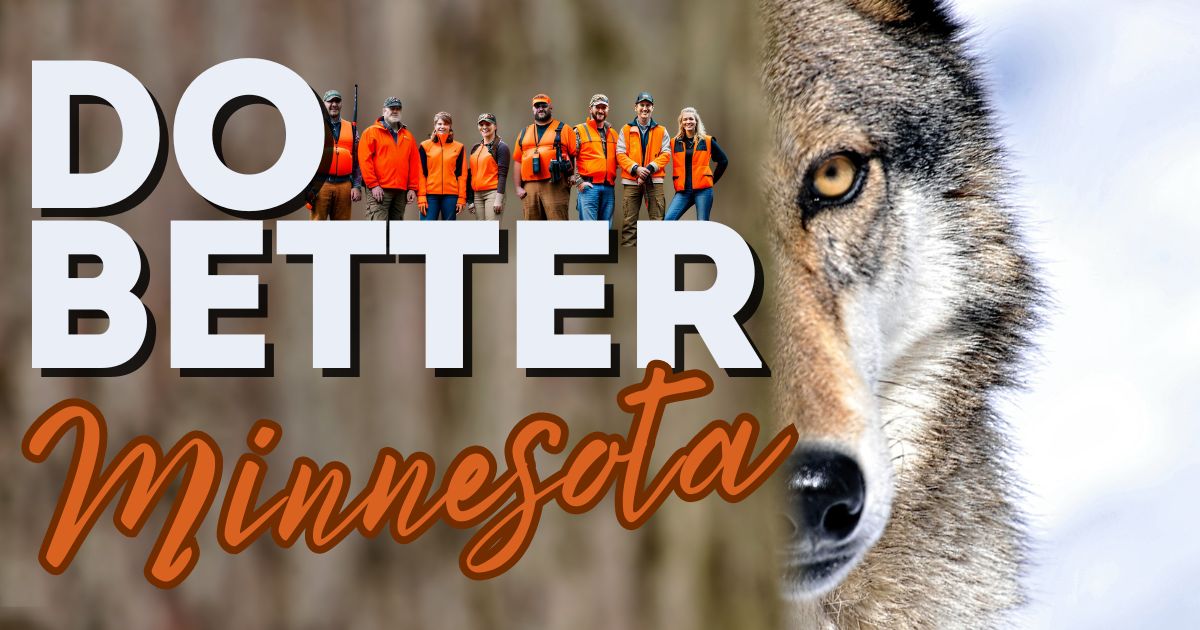

Deer hunters in Northern Minnesota are undoubtedly in a heated battle for responsible wolf management. We often hear the sentiment that it’s the folks living outside of the wolf range that are against active wolf management through hunting and trapping, while the folks that live with them in their backyards want common-sense wildlife management practices to be employed across all species, including the Gray Wolf.
In such situations, it's understandable how an "us vs. them" mentality can develop. People tend to become entrenched in their positions, especially when it comes to issues as deeply rooted as wildlife management. However, it's important to recognize that finding common ground and working towards sustainable solutions requires dialogue and understanding from both sides. Resorting to name-calling and emotional appeals only serves to further polarize the debate and hinder progress. It's crucial for stakeholders to engage in respectful and constructive conversations, acknowledging each other's concerns and values. By focusing on shared goals, such as maintaining healthy ecosystems and preserving wildlife diversity, it may be possible to bridge the divide and develop management practices that are both effective and equitable.
This is where we, as hunters, need to do better. When we read headlines such as, “Wyoming Man Tortures, Kills Wolf,” we are further solidifying the views and opinions of those that are anti-wolf management, and simultaneously damaging our credibility. The article referenced above is obviously referring to Cody Roberts, the Wyoming man who ran a wolf over with his snowmobile, duct taped its mouth shut, brought it to a local bar, posed for pictures with it, beat it, and eventually killed it. That is not a hunter. That is not a community I want to be any part of. Yet, many “hunters” and anti-wolf individuals have celebrated, supported, and even reenacted his actions on social media. Not only will this significantly hurt any chances we have of restoring active wolf management in the State of Minnesota, but it will make all of the amazing work that hunting and conservation groups engage in much more difficult, because we are losing in the court of public opinion. We need to show that such behavior is not representative of the hunting community as a whole and must be condemned in the strongest terms.
Furthermore, when hunting organizations put up billboards with pictures of a snarling wolf that read, “Protect wildlife, not wolves,” it fosters a stereotype of hunters as intolerant and ignorant. So ignorant in fact that they don’t realize wolves are indeed themselves wildlife. When those same organizations allow, and even celebrate, open dialogue pertaining to the illegal killing of wildlife, again we damage the credibility of every true hunter and conservationist that values ethical and legal hunting practices and undermines efforts to foster understanding and cooperation among stakeholders. Wolves are a vital part of the Minnesota landscape and their future within our state should never again be threatened. If we can’t find common ground on this, we will never get the support we need to reinstate active wolf management through hunting and trapping.
It's essential for hunting organizations and advocates to promote a more nuanced understanding of wildlife management that recognizes the interconnectedness of ecosystems and the importance of conserving biodiversity. Instead of divisive messaging, efforts should focus on collaborative approaches that seek to balance the needs of various species while also considering the perspectives and concerns of different stakeholders.
By promoting a message of respect for all wildlife and advocating for science-based management practices, we can work towards fostering a more inclusive and constructive dialogue around wildlife conservation. This approach not only benefits the broader ecosystem but also helps to improve the overall public perception of hunting and conservation efforts. In order to foster positive change and regain public trust, hunters must actively promote and practice ethical hunting principles, including respect for all wildlife and adherence to laws and regulations. Additionally, we must engage in constructive dialogue with diverse stakeholders, including those who hold differing views on wolf management, in order to help bridge divides and promote understanding. I am proud to say that this is the approach that the Minnesota Deer Hunters Association always has and always will take when handling these types of issues.
